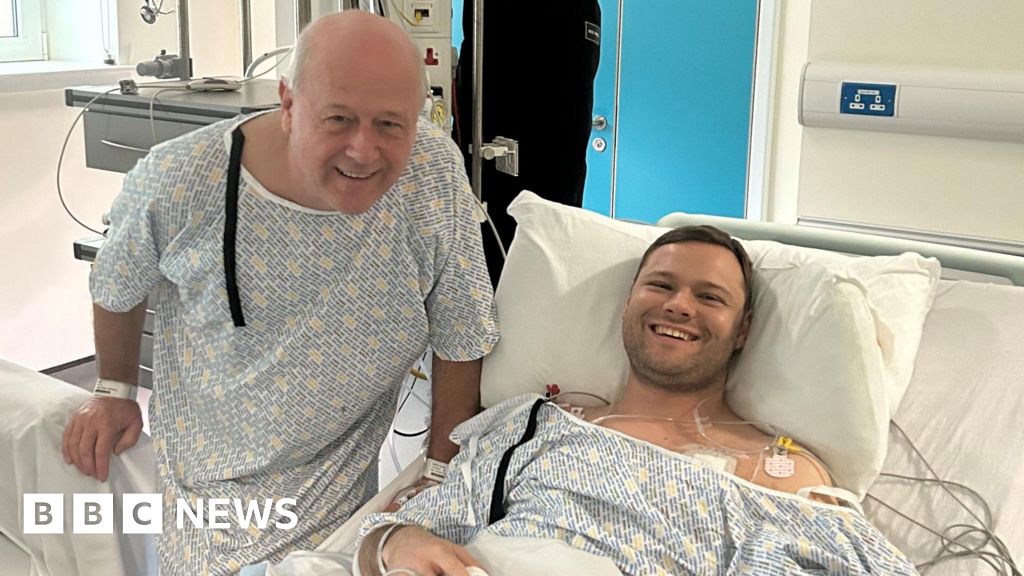ARTICLE AD BOX
 Image source, Getty Images
Image source, Getty Images
Liver disease is the third biggest cause of premature death among people under 40, say the scientists behind the trial
By Jacob Evans & PA Media
BBC News
A clinical trial examining whether a "poo transplant" can benefit people suffering from advanced liver disease has been launched by one of London's leading universities.
The trial will see patients consume freeze-dried faeces capsules from a healthy donor for 21 months.
Researchers from King's College London hope it will improve the gut health of those with cirrhosis.
Cirrhosis occurs when a liver is scarred and permanently damaged.
According to the scientists behind The Promise trial, chronic liver disease (CLD) is the only major chronic disease on the rise in the UK.
They also estimate that CLD is the third biggest cause of premature death among people under 40.
People living with the condition are more susceptible to infections, which can be more difficult to treat with antibiotics.
The researchers believe it therefore may be helpful to replace the "unfriendly" bacteria found in damaged livers with bacteria donated from a healthy person.
During the clinical trial, five capsules of dried poo will need to be consumed over a three-month period.
Patients will follow this treatment for 21-months, or until they develop a first infection which requires a hospital admission.
'Death sentence'
The trial will examine if the side effects of liver cirrhosis are reduced and whether it is beneficial for liver and immune system health.
Dr Lindsey Edwards, who is leading the trial, said infections were "a death sentence to liver patients" and sufferers were at a "high risk" of developing resistance to treatment drugs.
The trial is being funded by the National Institute for Health and Care Research UK (NIHR) and will involve about 300 participants.
A previous study into the use of faecal capsules by the same research unit found the method to be safe and feasible.
Prof Debbie Shawcross, chief investigator in the trial, said the capsules have "none of the taste or smell" as the name suggests and may offer new hope for patients with cirrhosis "who are out of treatment options".
The trial is supported by the British Liver Trust and its head, Pamela Healy, believes the study can contribute far beyond liver treatment.
"Finding new, effective ways to treat resistant bacteria is one of the most important challenges in global medicine and this could provide a solution that could save healthcare systems across the world millions of pounds," she said.
Follow BBC London on Facebook, Twitter and Instagram. Send your story ideas to hellobbclondon@bbc.co.uk
Related Internet Links
The BBC is not responsible for the content of external sites.

 1 year ago
52
1 year ago
52








 English (US) ·
English (US) ·